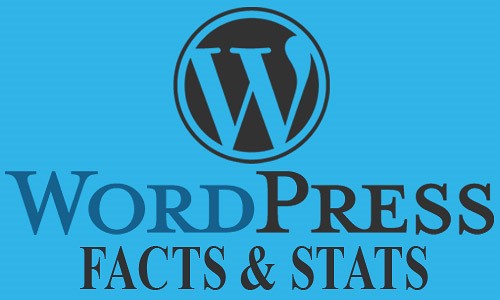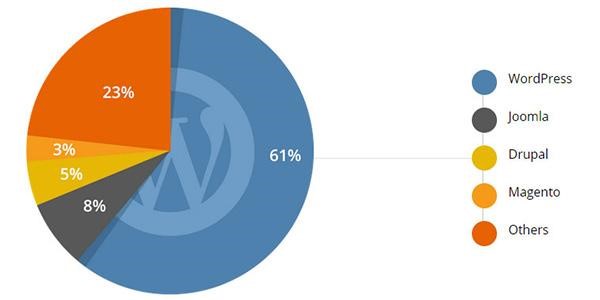If you own a business, then you need to have a website to withstand the competitive market and in growing your business. But the question that comes to your mind is where to start from? Which platform will be best for starting the development with? Even if you had a website, then you should know of ways to stay at the top. Either way, you have to consider having a website for escalating your growth and to ensure that it is not obsolete.
Building website on Content Management System is feasible and more efficient as it allows you to modify the content easily and effectively. They provide a level of abstraction so that users can easily create generic functionality and to achieve the goal of your business.
A reliable website provides particular functionality to users as a part of a business to facilitate web development and enhancing user experience. Web development includes designing the site, its layout, frameworks, application programming interface (APIs) that coalesce to present one single entity and solutions to users.
Over other platforms, WordPress has an edge and is the most popular Content Management System (CMS). It is an application that can be extended through the use of its rich functionality and APIs. Of course, there are other different frameworks and applications available but with WordPress, the usability is quite easy as compared to other CMS. It is free and open source plus large communities of developers making it the popular. If you don’t have enough budget but want to reap immeasurable benefits, then WordPress is the way to go. You can even start by choosing a free WordPress hosting provider and try this CMS without breaking the bank. This is a good choice, indeed because of customizable WordPress theme, plugins, cross-platform compatibility.
Let’s have a look at some of the facts of WordPress:
- 75 million sites depend on it
- WordPress almost powers 23% of the entire websites
- There are 37 million searches for keywords per month.
- There are more than 45,000 plugins
As the pie chart says it all that WordPress is the widely used platform and other platforms are nowhere. But to every side, there are two stories. Though it is popular but still it has some gaps that need to be filled. So, through this article, we’ll be discussing the advantages and drawbacks of WordPress.
It follows like this.
The Advantages of WordPress
- Open source: WordPress is an open source platform meaning that developers can use the code written and used already without having to modify or starting from the beginning, isn’t that great? As it has large communities of developers, thereby, developers share codes with each others saving time and cost of writing and implementing a new one. It comes under the GPLv2 license that means, you can easily modify, distribute and use the code without having to pay any subscription or license fees.
- Usability and simplicity: With other frameworks or CMS you need have a basic understanding of technical jargon and knowledge but when it comes to WordPress users with no technical background and use it and that too, quite easily. You don’t need to be familiar with programming languages like HTML, PHP, CSS etc as it is click and use. WordPress is easy to setup, update and manage.
- Easy of operation: with time everything changes or just to abide by the new technology and guidelines you need to introduce a little modification in your site be it removing/adding a page, changing the background color, themes etc. Now, what? You will be outsourcing your project or hiring designers or developers for the modification but with WordPress, you don’t have to hire anyone no need of technical assistance as you can make changes to the site without writing a single line of code. This saves you time and money as you don’t need a high-level developer/designer for its setup.
- Plugins: Another great advantage of WordPress. It has over 45,000 plugins for almost every functionality. You want to run an analysis of your site, you have a specific plugin want to enhance the SEO you’ve got another one. Again, you don’t have to write a single line of code for any functionality just install the respective plugin and have that functionality in your site.
- Rapid development: The major advantage of WordPress is the speed at which you’re able to create and start using a website. You can create full on interfaces, applications and site with the help of APIs. The process of developing a site is quite straightforward especially drag and drop functionality making it much faster to develop websites.
The Disadvantages of WordPress
- Open source: What could be the blessing is the curse itself i.e WordPress is famous because it is an open source and this is the same reason for its downfall. As it is widely used, it is always at the target of hackers. Your site is vulnerable to cyber attacks as the code you use has been written by someone else, therefore, the possibility could be that it might contain some malicious code or bug to hinder the functionality of the site.
- The Speed of the site: WordPress sites have lots of generic codes and plugins for incorporating functionality into the site hence, it could make the site respond slowly decreasing the loading time. If users find that the site doesn’t respond well and is taking time, then they will consider going for the other alternatives. It is always good to consider using a high performance hosting to avoid potential problems like this.
- Excess of plugins: Plugins are there to enhance the functionality of the site but, they could work the other way round too. Using lots of plugins will drastically affect the performance of the site making it slower and decreasing the response time. Try to refrain from using plugins and with each update uninstall the ones that are not working or not needed anymore.
- Frequent updates: Frequently updating your site might hamper its functionality. Updates make the sites more enhanced. After each update some functionality of the site doesn’t work for example plugins might stop working and you need to remove the old ones with new ones. Also, before updating the site make sure that you have a backup of your site in case, when the update is not successful you could restore to the previous version easily.
- MySQL as Database backend: WordPress uses MySQL as a database backend which is less secure, hence, susceptible to cyber attacks and can easily be hacked. Until the 3.9 version, the private and important data was stored on MYSQL driver but now it uses MySQLi.
- Suboptimal for SEO: SEO makes your site stay at the top and make it visible for the users to access it. You don’t have to code or depend on developers or outsource it to external assistance just install the respective plugin and enhance the performance of your site.
The conclusion:
Though WordPress has both advantages and disadvantages but still using it feasible and its advantages has an upper hand over its disadvantages. With WordPress, it’s completely possible to mix various frameworks and to escalate the growth of the business and achieving the desired goal.
Author Bio:
Emily Smith is an ed-tech enthusiast and has been associated with CWS Technology as a writer for more than 7 Years. CWS is the leading web development company that also provides PSD to WordPress and other IT solutions. Emily has a passion for writing on emerging technologies like application management outsourcing, consulting, system integration etc.










